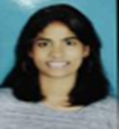Vision
To be forefront in the aviation field by contributing to the intellectual, social and economic development of the aviation industry and the citizens of our nation. It is served through precept, research fueled by the advanced curriculum to endeavour the highest standards to excel in their Aviation profession.
Mission
- To empower and encourage the students with the knowledge and practical skills required in the field of Aviation and Aviation.
- To impart quality education through the technologically advanced curriculum which would be delivered by the industry experts.
- To train the students to have in-depth knowledge of the subjects in the field of aviation and groom them in soft skills & survival skills.
Vistas B. Sc Aviation program in partnership with knowledge partner (MH Cockpit), a distinguished three-year degree course approved by the University Grants Commission (UGC) in New Delhi. Our comprehensive program equips students with a deep understanding of aviation, focusing on various aspects of the industry, including the essential theoretical knowledge required for obtaining a Commercial Pilot License (CPL) from the Indian Directorate General of Civil Aviation (DGCA), Air Traffic Control (ATC), Airport, and Airline operations.
Program Highlights
PROGRAM HIGHLIGHTS
Theoretical Knowledge for CPL: Our B. Sc Aviation program places a strong emphasis on providing students with a solid foundation in theoretical aviation knowledge necessary for the successful pursuit of a Commercial Pilot License (CPL) as per the standards set by the DGCA.
ATC and Airport Operations: Students delve into the intricacies of Air Traffic Control (ATC) and gain insights into airport operations. This includes both technical and operational aspects, ensuring a holistic understanding of the dynamic aviation environment.
Airline Ground and Flight Operations: The program extensively covers the complexities of airline ground and flight operations. Students learn about the various procedures, protocols, and challenges involved in ensuring the seamless functioning of airlines.
Practical Training: To enhance the learning experience, our program includes practical training sessions that allow students to apply their theoretical knowledge in real-world scenarios. This hands-on approach prepares them for the practical challenges they may encounter in their aviation careers.
Industrial Visits: We believe in providing our students with exposure to the industry through organized industrial visits. These visits facilitate a better understanding of the operational environment, giving students a firsthand look into the day-to-day workings of airports, airlines, aircraft maintenance organizations, and aerospace companies.
Internships: As part of the curriculum, students are offered opportunities for internships in both domestic and international airports, airlines, aircraft maintenance organizations, and aerospace companies. These internships provide valuable industry experience, helping students bridge the gap between academia and the professional world.
Programme Educational Objectives (PEOs)
PROGRAM EDUCATIONAL OBJECTIVES (PEOs):
PEO 1: To Produce Graduates demonstrating their critical thinking, communication, team work and situational awareness skills on daily basis
PEO 2: To produce graduates who can meet the diversified needs of the aviation industry.
PEO 3: To gain an understanding of professional and ethical behaviour in the aviation field.
Programme Outcomes (POs) & Programme Specific Outcomes(PSOs)
PROGRAM OUTCOMES(POs):
PO 1: Disciplinary knowledge : Students will demonstrate in-depth knowledge and understanding of Aviation field
PO 2: Communication Skills : Students can express thoughts and ideas effectively in writing and orally, and also able to present complex information clearly and concisely to different groups.
PO 3: Critical thinking : Students can apply analytic thought to a body of knowledge; analyse and evaluate evidence, arguments, claims, beliefs based on empirical evidence; identify relevant assumptions or implications; formulate coherent arguments; critically evaluate practices, policies and theories by following a scientific approach to knowledge development.
PO 4: Problem-solving : Students can build the capacity to extrapolate from what one has learned and apply their competencies to solve different kinds of non-familiar problems, rather than replicate curriculum content knowledge; and apply one’s learning to real-life situations.
PO 5: Analytical reasoning : Students can evaluate the reliability and relevance of evidence; identify logical flaws and holes in the arguments of others; analyse and synthesize data from a variety of sources; draw valid conclusions and support them with evidence and examples, and addressing opposing viewpoints.
PO 6: Research-related skills : Students can recognize cause-and-effect relationships, define problems, formulate hypotheses, test hypotheses, analyse, interpret and draw conclusions from data, establish hypotheses, predict cause-and-effect relationships; the ability to plan, execute and report the results of an experiment or investigation.
PO 7: Cooperation/Team work : Students can work effectively and respectfully with diverse teams; facilitate cooperative or coordinated effort on the part of a group, and act together as a group or a team in the interests of a common cause and work efficiently as a member of a team.
PO 8: Scientific reasoning : Students can analyse, interpret and draw conclusions from quantitative/qualitative data; and critically evaluate ideas, evidence and experiences from an open-minded and reasoned perspective.
PO 9: Reflective thinkingStudents can develop Critical sensibility to lived experiences, with self- awareness and reflexivity of both self and society.
PO 10: Information/digital literacy : Students can use ICT in a variety of learning situations, demonstrate the ability to access, evaluate, and use a variety of relevant information sources; and use appropriate software for analysis of data.
PO 11: Self-directed learning : Students can work independently, identify appropriate resources required for a project, and manage a project through to completion.
PO 12: Multicultural competence : Students can get knowledge of the values and beliefs of multiple cultures and a global perspective, and the capability to effectively engage in a multicultural society and interact respectfully with diverse groups.
PO 13: Moral and ethical awareness/reasoning : Students can embrace moral/ethical values in conducting one’s life, formulate a position/argument about an ethical issue from multiple perspectives, and use ethical practices in all work. Capable of demonstrating the ability to identify ethical issues related to one’s work, avoid unethical behavior such as fabrication, falsification or misrepresentation of data or committing plagiarism, not adhering to intellectual property rights; appreciating environmental and sustainability issues; and adopting an objective, unbiased and truthful actions in all aspects of work.
PO 14: Leadership readiness/qualities : Students can develop the ability to mapping out the tasks of a team or an organization, and setting direction, formulating an inspiring vision, building a team that can help achieve the vision, motivating and inspiring team members to engage with that vision, and using management skills to guide people to the right destination, smoothly and efficiently.
PO 15: Lifelong learning : Students can acquire knowledge and skills, including “learning how to learn‟, that is necessary for participating in learning activities throughout life
PROGRAM SPECIFIC OUTCOMES(PSOs):
PSO 1: Able to understand the various scientific principles and they can able to apply in the field of Aviation.
PSO 2: Demonstrate ability to research information pertinent to their aviation discipline
PSO 3: Realize the need to continuously gain knowledge throughout life within and outside of aviation.
Curriculum & Syllabus
Curriculum & Syllabus
(MINIMUM CREDITS TO BE EARNED: 140)
| SEMESTER 1 | Hours/Week | Maximum Marks | ||||||
|---|---|---|---|---|---|---|---|---|
| Code No. | Course | Lecture | Tutorial | Practical | Credits | CA | SEE | Total |
| LANG | Tamil I / Hindi / French | 3 | 0 | 0 | 3 | 40 | 60 | 100 |
| ENG | English I | 3 | 0 | 0 | 3 | 40 | 60 | 100 |
| CORE | Mathematics | 3 | 1 | 0 | 4 | 40 | 60 | 100 |
| CORE | Fundamentals of physics | 3 | 1 | 0 | 4 | 40 | 60 | 100 |
| CORE | Familiarization of Airport | 4 | 0 | 0 | 4 | 40 | 60 | 100 |
| CORE | Physics Lab | 0 | 0 | 4 | 2 | 40 | 60 | 100 |
| CORE | Workshop Practices Lab | 0 | 0 | 4 | 2 | 40 | 60 | 100 |
| AECC | Communication Skills | 1 | 0 | 2 | 2 | 40 | 60 | 100 |
| SEC | Orientation / Induction programme / Life skills | - | - | - | - | - | - | - |
| Total | 17 | 2 | 10 | 24 |
Eligibility Criteria
| 3 Years (6 semesters) | A pass in (10+2) with Physics and Mathematics or equivalent (or) Three years of Diploma from a recognised board | Merit based on the percentage of marks secured in the qualifying examination |
Career Prospects
- Pilot
- ATC Officer
- Airport Operations Professional
- Airline Ground operations Officer
- Airline Flight Operations Officer
- Flight Dispatcher
- Load and trim Officer in an airline
- Cabin crew
- Turn around co ordinator
- Cargo officer
- Airline Network planning Analyst
- Airport operations control centre officer
- Officers Category Positions in All Armed forces preferably in Aviation Unit of Indian Airforce, ARMY, Navy, coast guard.
- Eligible to Apply for state and Central Government Group 1 , 2 and other category Exams
Alumni Testimonials

VISTAS have provided me a platform to realize my potential & to make the best use of it. All of my professors and faculties were outstanding & gave me the best guidance possible. Currently Working as a Security Executive/Ground Services in SPICE JET
Mobile: 9787857223
E-mail: vishwakm2000@gmail.com
Mr. K.VISHWANATHAN (B.Sc. Aviation),2021
Security Executive/Ground Services in SPICE JET

The course is very comprehensively designed and the faculties are exceptional. The guidance and the support of the professors throughout our course were incredible. Currently Working as Working as a Security Executive/Ground Services in SPICE JET
Mobile: 9443046335
E-mail: vikiselva007@gmail.com
Mr. R. SELVA MUTHUKUMAR (B.Sc. Aviation), 2021
Security Executive / Ground Services in SPICE JET

I am really lucky and proud to have been a part of this institution. VISTAS has helped me a lot to first of all give me an orientation and the practical approach providing me with valuable information and helping me every day in my career. Currently working as a Working as a Security Executive/Ground Services in SPICE JET
Mobile: 9790831469
E-mail ID: abthinyayshwaria555@gmail.com
Ms. A.AYSHWARIA GRACE (B.Sc. Aviation), 2021
Security Executive/Ground Services in SPICE JET
Fee Structure
| Tuition Fee 2024 - 2025 (Per Sem) | Other Fee (Per Sem) | Total Fee 2024 - 2025 (Per Sem) |
|---|---|---|
| 90,000 | 10,000 | 1,00,000 |
 CHAT WITH A STUDENT
CHAT WITH A STUDENT